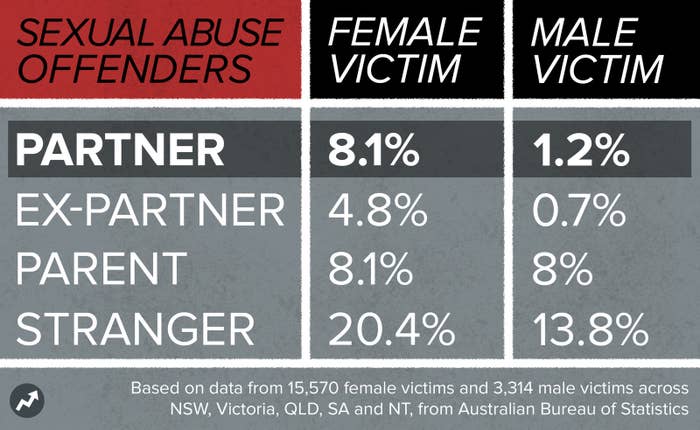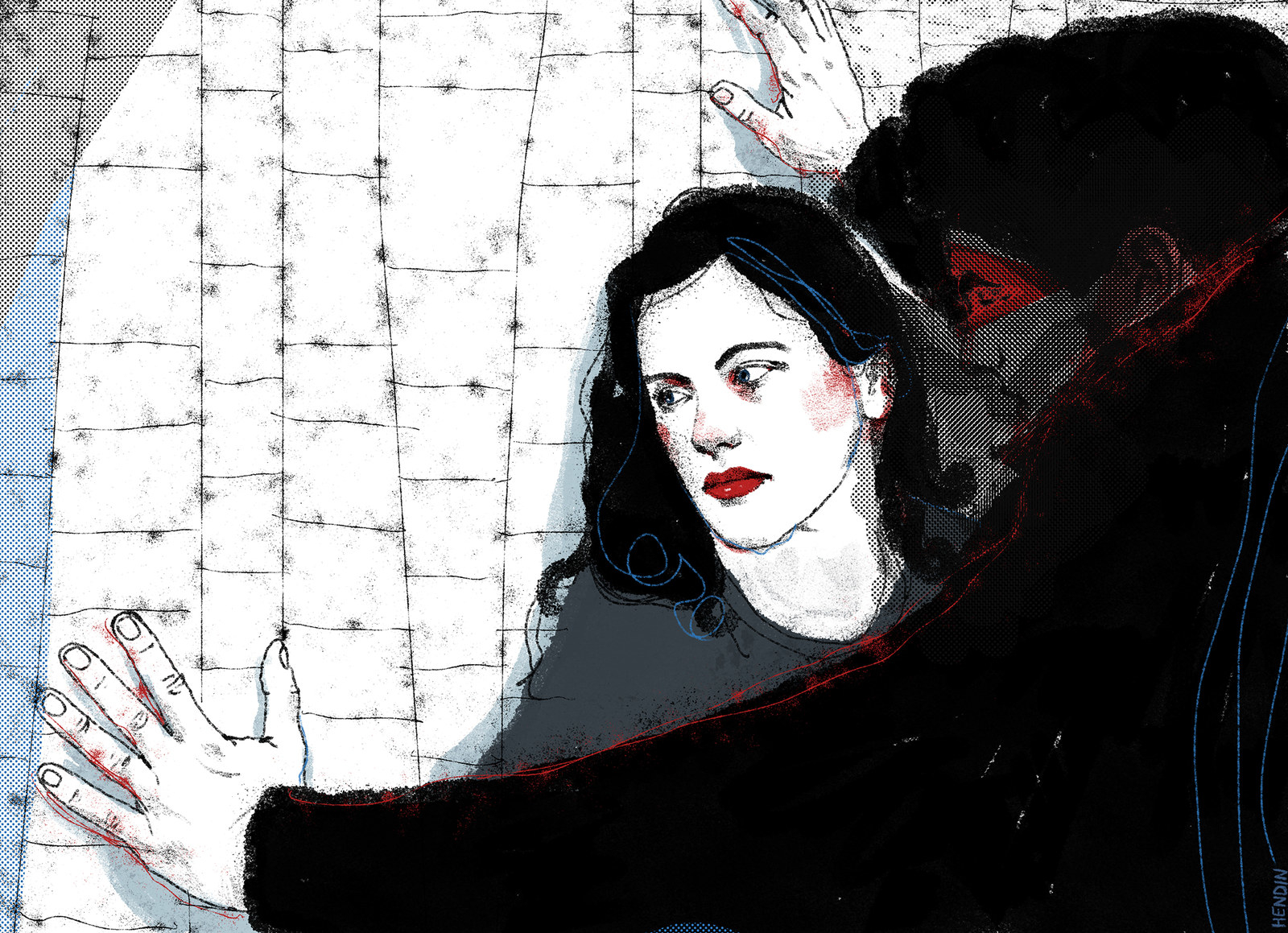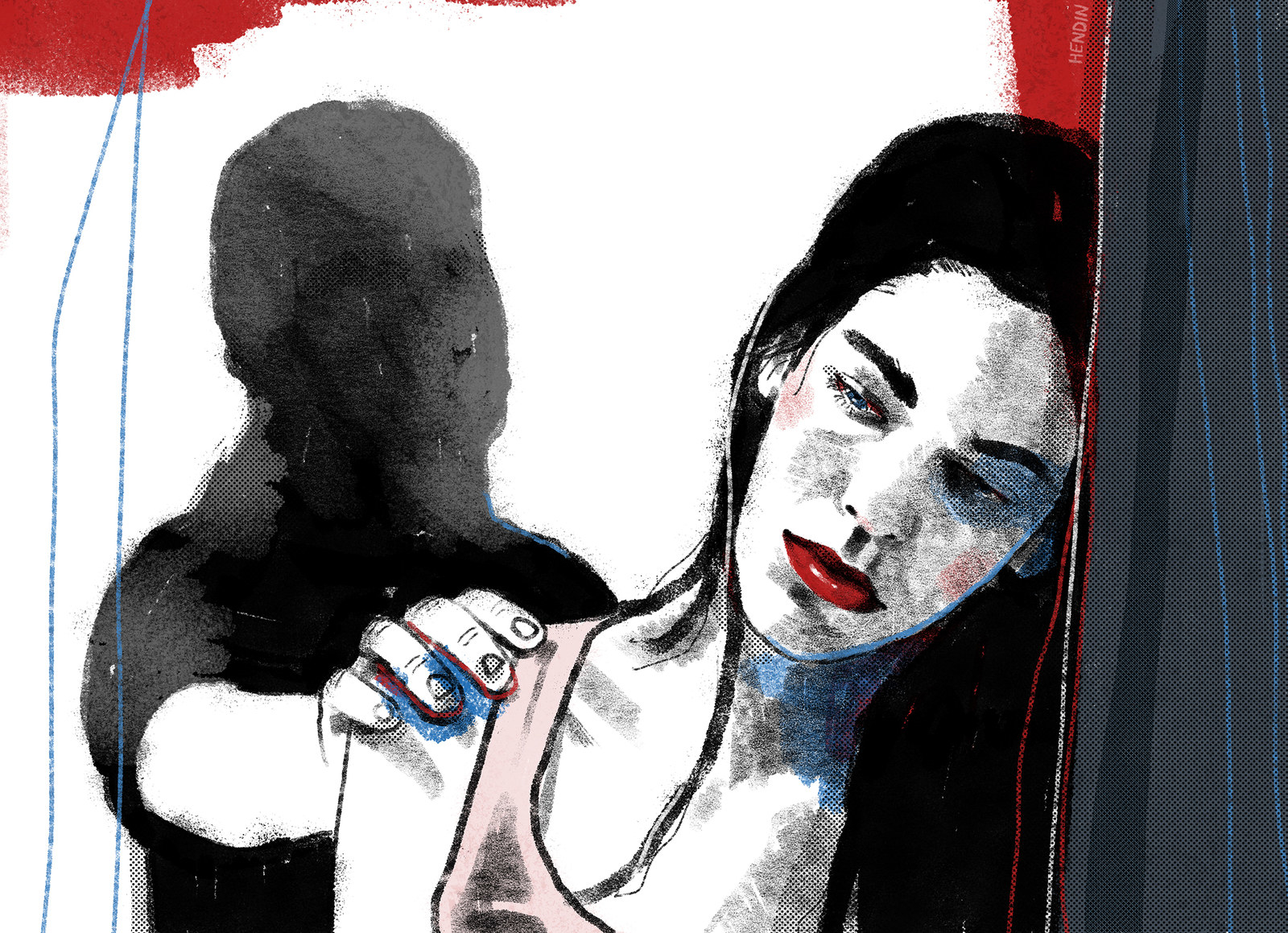The stereotype of a rapist as a stranger who preys on random victims in public places is at odds with the data we have about offenders.

In 71% of sexual assaults against a woman, the offender was known to the victim and 80.9% of cases where the victim was a male, the latest figures across five states and territories from the Australian Bureau of Statistics found.
The proportion of female sexual assault victims who were sexually assaulted by their partners ranged from 6% in the Northern Territory to 11% in South Australia in 2015.
These are the stories of five Australians who have experienced sexual violence at the hands of their partners.
Estelle had come to accept that unwanted touching was a “natural part” of a relationship with a man.
"My breasts and arse were not my own," Estelle told BuzzFeed News. Estelle's name, and all others in this story, have been changed to protect their identities.
In her three-year relationship with ex-boyfriend Adam she said “real consent" was "almost wholly absent”.
“I was taught to be fearful that if I didn't satisfy every single one of my partner's sexual needs, then I would lose him to someone who would."
“There were so many times when I would find myself very reticently acquiescing to him, because I was afraid that going two, three nights in a row without satisfying him would be the motivation he needed to leave.”
When she was cooking, studying or washing the dishes Adam would often come up behind her and "thrust violently" into her.
"It made me feel so powerless and reminded me of his strength."
She agreed to participate in sexual acts that made her “so deeply uncomfortable” because she was afraid of saying “no”.
“I would often awake in the middle of the night – usually on nights where I had refused him sexually – to find him on top of me, probing me with his fingers, sometimes forcing himself inside me.
“There was no consent... sometimes he would stop, sometimes he wouldn’t.”
The first time Estelle woke to find Adam on top of her she put up a fight. She repeatedly said "No", told him to stop, and pushed him off her. When she resisted, she was told she was “frigid”, which negatively impacted the relationship, “causing problems”.
Once when she said no to sex, Adam hit her.
“I surrendered my body to my partner, and if I did dare to assert my autonomy, I would be hurt, I would be assaulted, I would be raped, and I would be blamed for damaging our relationship because, after all, 'a man has needs'."
“When women commit to a relationship, more often than not they're expected to forfeit their consent. This terrifies me.”

Carmen fell for her co-worker Mitchell, who was “funny, friendly and quick with a smile”.
They were together for a year during which she said: “I was terrified of the person who was meant to be my greatest protector.”
Mitchell attacked her verbally, physically and sexually, but carried an arsenal of excuses to justify the assaults.
“He'd cry that he felt unloved, that we weren't having sex as often as he felt we should. Sometimes it was because he'd seen another man look me up and down, and that I needed to be reminded that I was his. A few times I'd spent too long talking to a male friend.”
His sadness could quickly morph into aggression.
“It would progress within minutes from tears to him straddling me, hands around my throat and him pushing himself inside me,” Carmen said.
She convinced herself that she had let him down, that she deserved it and “needed to recognise his needs more”.
“Right after he would always be apologetic about the marks he'd leave.”
Mitchell told Carmen she should be flattered that he couldn’t resist her and that he "couldn’t not fuck” her.
He tried to rewrite these violent incidents as “rough sex”.
Carmen carried the weight of the abuse alone because she is athletic and didn’t think anyone would believe that she hadn’t fought back, or had failed to get the police involved.
“If anything was ever said about the marks on my arms or around my neck and face I'd shrug and say I didn't know, I was clumsy, and was simultaneously disappointed and relieved at how easily people were satisfied with such a pitiful answer,” she said.
Every time she tried to leave him she felt his threats of suicide moved closer to an “impending reality”.
“It got to the point where I truly believed that the relationship couldn't end with both of us alive, that the only difference would be the timing of when I would end it. And wasn't that awful, to think that I deserved life over him?”
The guilt stayed long after she had left him.
“It took a long time for me to understand that I did the right thing for me, and that I wasn't there to fix his life."
She feels hopeful about being able to recognise abusive and controlling behaviours earlier on in a relationship, but still suffers “enormous mood changes.”
Sometimes I'll rage inside myself, angry at him, at myself, at my lost identity and the year of my life I spent being frightened. Sometimes I'll be flat and have no energy for anything, what's the point, people are always going to be cruel. Sometimes I'll just cry.”
Carmen still has to see Mitchell at work but it is getting easier.
“I'm still fighting, and I am not broken.”

Jasmine was a "pretty sheltered kid" who had been homeschooled for most of her life by her religious parents.
But she went through a rebellious phase at age 18 during which she was pursued by 33-year-old Victor from her community theatre group.
“I don’t even remember him asking me out, we were just together all of a sudden,” she told BuzzFeed News.
“We’d had long conversations about the issue of losing my virginity and I was very clear that I would let him know when I was ready.”
These conversations would end with Victor “promising to wait”.
“One night there was a party at his house and lots of people slept over, so there wasn’t anywhere for me to sleep but in his bed. I was really drunk and sleepy, so I just rolled in fully dressed and passed out.
“By the time I woke up he was already penetrating me. It was the pain that woke me up, actually.”
Jasmine said she “froze up” and “stayed still until it was over”.
“Afterwards he held me and I cried and he told me that all girls cry when they lose their virginity.”
She took the morning after pill and was “terrified” her parents would find out.
“I remember washing the blood out of my underwear and lying to my mother when she caught me, saying my period had come early. That whole day was just one humiliation after another.
“I had been raised to believe that if I tempted a man to sin, it was kind of my fault. That was just how my parents understood their religion and how they taught it to me… I think that’s why I didn’t report it, I didn’t tell anyone actually.”
She stayed in the relationship for seven more months.
It wasn’t until years later when she was at a party and other girls were telling the stories of how they lost their virginity, that Jasmine realised her experience “was not normal”.
“What struck me about their stories was the power and control they had… I was like, 'Whoa, you got to choose?' And then I realised that what happened to me was not normal.”
For most of her 20s Jasmine said sex was an “out of body experience” in which her “heart and mind were locked away”.
“I used to not be able to fall asleep in someone’s arms – the weight of an arm or leg on my body as I fell asleep made me panic, and I would flash back to the moment I woke up with my ex raping me.”
She is now in a long-term relationship with a “gentle and understanding partner”.
“I’m starting to be able to fall asleep with my partner in my arms. It took a long time, but I’m proud of surviving.”

Lara was with her husband and the father of her child for 10 years before they separated in what she said was a “normal, loving and accepting relationship”.
“Once we separated, there appeared to be a lot of resentment despite the fact we worked hard to be amicable co-parents.”
She had just started a new job and wasn’t coping.
On her third day, Lara had a panic attack and called her ex-husband for advice.
“He came over to talk and watched me down half a bottle of whisky. Within a few hours I was very noticeably drunk.”
Lara said when she went to bed he followed her.
“I was 35 and we’d been separated for five years at the time of the rape.”
She remembers the only thing she had the strength to do was move her face so he couldn’t kiss her.
“I think I said 'no' but I was beyond drunk. I couldn't move and it would have been incredibly apparent I was not responsive or desired sex. Afterwards, he got dressed and let himself out.”
The incident was “incomprehensible” for Lara who said her ex-husband had helped her overcome previous sexual abuse.
“To say the rape was a surprise is an understatement. To do it while I was physically and psychologically unable to give consent, to rape me when I was at my lowest was just vile.”
The next time she saw him she was “quietly terrified” that he would rape her.
“I was literally sitting there crossing my legs and then crossing my arms over my hips for the entire night. My body was trying to defend me because the brain just hadn't switched into gear.”
These days she tries to avoid him.
“I remain polite for the sake of our child.”
Bree was 15 when she started seeing Alex, a transgender man who identified as a woman when they were together.
"I was ostracised by my friends for the relationship because we went to a Catholic high school and people saw it as a same-sex relationship, so there was a lot of internalised homophobia," Bree, now 21, said.
"It was my first significant relationship so it took me a while to realise how unhealthy it was."
One day after school Alex told Bree he wanted to tie her up so she couldn't move and blindfold her.
"I was uncomfortable with that from the get-go but I conceded," she said.
"Then very early on into the sex I said 'no' and that I didn't want to do this anymore and I didn't feel comfortable, but he put his arm across my abdomen so I couldn't struggle and it got more violent and rough.
"I stopped saying 'no' and I couldn't make a lot of noise because my parents were in the house."
Afterwards, Bree tried to talk to Alex about it.
"He told me he thought I was saying 'no' because I thought he would enjoy that, which is not something we'd ever done before... the blame was put on me for not making it clear I didn't want it."
He gave her flowers and said he "felt terrible", but wouldn't admit why.
"I kept trying to talk about it and eventually he just said: 'You can either call the police and send me to jail, or we can stop talking about it'."
They broke up three months later.
"It is difficult to have sex now and not have it at least cross my mind," she said.
"In a way, Alex transitioning has made it easier for me because people are more willing to believe me that I was assaulted now they know he is a man. But when we were together he identified as a woman."
If you or someone you know is experiencing violence and need help or support, there are national and state-based agencies that can assist you 24 hours a day, seven days a week. Call 1800 RESPECT (1800 737 732).
